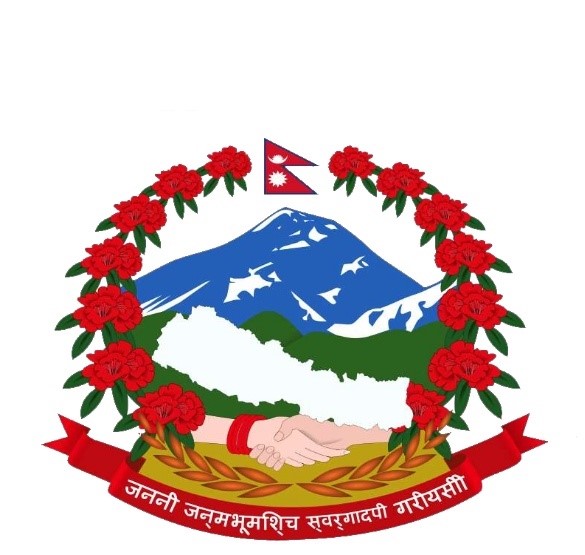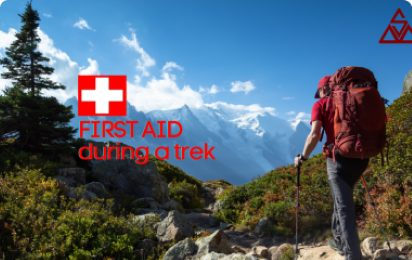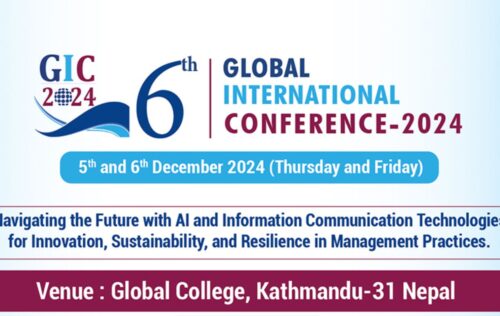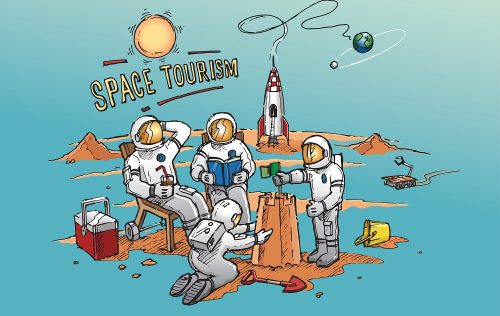Tourism Policy, 1995 (Unofficial Translation)
Preamble:
The tourism industry is growing very rapidly and Nepal has tremendous potential for tourism development because of its unique natural and cultural heritage. In this context, this tourism policy has been formulated with the aims of: increasing national productivity and income; increasing foreign currency earnings; creating employment opportunities; improving regional imbalances and projecting the image of Nepal more assertively in the international arena; through the development and diversification of the travel and tourism industries.
Objectives :
To develop tourism as an important sector of the national economy by developing linkages between tourism and other sectors.
To diversify tourism down to rural areas so as to improve employment opportunities, foreign currency earnings, growth of national income and regional imbalances.
To improve natural, cultural and human environments of the nation in order to develop and expand the tourism industry.
To maintain a good image of the nation in the international community by providing quality service and a sense of security.
To develop and promote Nepal as an attractive tourist destination.
Policy :
The participation of the private sector will be sought to the maximum extent for development and diversification of tourism products. The involvement of government will be primarily directed towards infrastructure development. Apart from this, HMG will maintain its role as co-ordinator and motivator for the growth of the travel and tourism industries.
Participation of the Nepalese people in the integrated manner will be carried out for environmental conservation programmes which contribute to sustainable tourism development.
Existing tourism infrastructure and facilities will be upgraded. Priority will be given to developing new tourist destinations, particularly in rural areas.
Popular religious tourism sites will be improved and promoted in order to develop religious tourism.
Nepal will be developed as a centre for adventure tourism.
Tourist service and facilities in the kingdom will be encouraged to upgrade in quality. Special efforts will be made to make Nepal a secure place for tourists.
Due attention will be paid to improving regional imbalances while developing tourism.
Competitive tourism promotion and marketing will be launched in tourist originating markets to establish Nepal as a major tourist destination.
Linkages will be established between tourism and agro-based as well as cottage industries. Emphasis will be placed on developing these related sectors simultaneously.
Local investment will be encouraged in service-oriented, travel and trekking agency businesses in which local investors have proven capability. Foreign investment, including joint ventures, will be promoted in areas which transfers skills and technology or in capital intensive industries like hotels and resorts.
The National Civil Aviation Policy will be implemented as an integral part of Tourism Policy.
Working Policy :
Tourism investment will be diversified and channeled for the creation and improvement of infrastructure in new destination areas.
The private sector will be motivated to make systematic and effective use of existing infrastructure in order to develop sightseeing packages of cultural and religious sites, high Himalayan ranges and places with outstanding natural beauty.
The private sector will be motivated to operate environmentally friendly recreational, adventure activities based on water, land and air in various parts of the kingdom.
Services and facilities will be expanded in temples, monasteries and other religious sites to attract more domestic tourists on the one hand, while attempting to develop such sites as international religious centres on the other.
Wildlife tourism will be developed and promoted in various geographic areas, in recognition of the bio-diversity that exists in the nation.
New trekking routes and climbing peaks will be opened, in a phased manner, with a view to spreading mountain tourism on a regional basis.
Coordination will be maintained with neighbouring countries to enhance cross-border tourism activities based on mutual benefit.
Innovative and promotional products such as conference tourism, cultural and youth tourism, international sports competitions etc. will be specially encouraged.
Rural tourism will be specially encouraged. Rural communities will be motivated to launch various programmes that contribute to the growth and promotion of rural tourism.
Programmes developed at different levels will be implemented for the awareness of people on tourism.
National environmental guidelines for tourism will be formulated and subsequently adopted to minimise adverse environmental impacts from tourism.
Local environmental codes will be designed in conformity with prevailing international conventions and national guidelines pertaining to the environment.
Land with high tourism potential under the ownership of the government will be leased out to private entrepreneurs for development of environmentally friendly resorts. The credentials and business plans of the private entrepreneur will be considered before leasing out such land on a long term basis.
The private sector will be allowed to invest in infrastructural services and facilities for tourists. However, certain standards will be fixed for such infrastructural services and facilities.
Tourism entrepreneurs will be encouraged to adopt codes of conduct through their respective professional associations for enhancement of quality in the services and facilities they offer.
Trekking areas will be classified into three categories as follows :
General Trekking Area:Areas with a network of good trails and which offer basic services and facilities to tourists will be categorised as general trekking areas.
Guided Trekking Area:Areas already open for trekking but not meeting minimum infrastructural requirements such as trails, and basic services and facilities such as hotels and lodges, will be categorised as guided trekking areas. Only group trekkers handled by trekking agencies will be allowed to visit such areas under fixed annual quotas.
Controlled Trekking Area:Areas in the high-Himalayan region which are out of modern civilisation and have very sensitive natural environments, and ancient indigenous cultures, will be categorised as controlled trekking areas. Only group trekkers handled by trekking agencies and accompanied by a government deputed liaison officer will be permitted to visit such areas.
Part of tourist revenues generated out of economically underprivileged areas, which have been classified as remote areas, will be spent for the conservation, preservation and development of the area in question.
Special programmes will be launched to maintain the glory of Mt. Everest, the highest peak on earth.
Special emphasis will be placed on promotion of tourism from Asian markets. Attempts will be directed at attracting tourists from neighbouring countries during the lean season when overseas tourists are few.
A Tourism Study and Research Unit will be set up in the Ministry of Tourism and Civil Aviation to guide the course of tourism development in a timely and objective manner.
Royal Nepalese embassies and consulates abroad will be mobilised for promotion of Nepal's tourism. Nepalese people abroad, or foreign citizens involved in tourism business or with a keen interest in tourism, can be appointed as representatives for tourism promotion.
Nepal will be promoted as a primary destination in international markets with direct flight connections. Joint promotion and publicity will be launched in other tourist generating markets which do not have direct flight connections with Nepal.
Special attention will be paid to make Nepal a secure destination.
A separate "Tourism Promotion Fund" will be set up for tourism promotion and special programmes will be launched through it.
Follow-up, evaluation and review of this Tourism Policy will be carried out periodically.
Classification of Tourism Industries:
The classification of travel and tourism industries will be as per Annex - 2
Provisions Relating to Facilities and Incentives to Travel and Tourism Industries: As per the provision set out in the Industrial Enterprises Act 2049 B.S., the Foreign Investment and Technology Transfer Act 2049, the One Window Policy and other notices published by HMG in the Nepal Gazette, facilities and incentives to be provided to travel and tourism industries are given in
Provision Relating to Tourism Manpower :
Regular tourism training programmes will be conducted through the Hotel Management and Tourism Training Centre (HMTTC) to enhance the quality of services provided to tourists. The private sector will also be encouraged to conduct such programmes.
Use of local manpower will be encouraged in travel and tourism industries to the maximum extent.
Institutional Arrangements:
The following institutional entities will be arranged for tourism development :
Tourism Council: A high level Tourism Council has already been constituted with a view to develop tourism as a backbone of the national economy and to maintain co-ordination and harmony among various agencies related to tourism. Solving problems faced by the tourism sector, issuing policy guidelines to the executing agencies under it (Ministry of Tourism and Civil Aviation, Department of Tourism and Tourism Development Board) and reviewing pertinent plans and programmes will be some of the main activities of the council.
Ministry of Tourism and Civil Aviation (MOTCA): The Ministry of Tourism and Civil Aviation will formulate policy in accordance with the policy guidelines set by the Tourism Council. Based on such policies, plans and programmes will be formulated and implemented through the Tourism Development Board and the Department of Tourism. Implementation of plans and programmes will be followed up and reviewed by MOTCA. Structural adjustment and co-ordination of tourism development programmes and acting as secretariat to the Tourism Council will be other responsibilities of the Ministry.
Department of Tourism: The Department of Tourism shall formulate and implement tourism development programmes in accordance with the set policy guidelines and directives of the Tourism Council and Ministry of Tourism and Civil Aviation. The Department of Tourism will be abolished to avoid duplicity of work when the Tourism Development Board is capable of assuming its full responsibilities. When responsibilities like formulation and implementation of tourism programmes, tourism promotion, infrastructure development, extension of tourist service and facilities, human resource development and environment conservation are handed over to the Board, registration regulation and facilitation of the travel and tourism industries will be carried out by MOTCA.
Tourism Development Board: The functions listed under (c) will be carried out by Tourism Development Board in accordance with the policy guidelines and directives of the Tourism Council and Ministry of Tourism and Civil Aviation. The proposed Board will be an autonomous and flexible body capable of carrying out all tourism related activities except those which must be carried out by His Majesty's Government. The board will have a separate seal and fund, in which funds made available by HMG in the form of grants, contributions by the private sector, international donor agencies and other sources will be deposited. The board will have full authority to spend money out of this fund. The area of jurisdiction, duties and responsibilities of the board including other operational details will be specified.
Annex - 1
Constitution of Tourism Council
1 Rt. Hon. Prime Minister Chairman
2 Hon. Minister/Minister of State of Tourism & Civil Aviation Vice-Chairman
3 Hon. Minister of Finance Member
4 Hon. Minister of Works & Transport Member
5 Hon. Minister of Home Affairs Member
6 Hon. Minister of Industry Member
7 Hon. Minister of Local Development Member
8 Hon. Minister of Forest and Soil Conservation Member
9 Hon. Vice-Chairman, National Planning Commission (NPC) Member
10 Member, NPC (In-Charge of Tourism) Member
11 Governor, Nepal Rastra Bank Member
12 Secretary, Ministry of Finance Member
13 Secretary, Ministry of Home Affairs Member
14 Secretary, Ministry of Defence Member
15 Secretary, Ministry of Industry Member
16 Secretary, Ministry of Forest and Soil Conservation Member
17 Secretary, Ministry of Education and Culture Member
18 Secretary, Ministry of Local Development Member
19 Secretary, Ministry of Foreign Affairs Member
20 Secretary, Ministry of Works and Transport Member
21 Two distinguished experts nominated from Tourism Sector Member
22 Chairman, Hotel Association of Nepal Member
23 Chairman, Nepal Association of Travel Agents Member
24 Chairman, Trekking Agents Association of Nepal Member
25 Chairman, Rafting Agents Association of Nepal Member
26 Chairman, Nepal Mounteering Association Member
27 Chairman, PATA Nepal Chapter Member
28 Chairman, Tourist Guide Association of Nepal Member
29 Chairman, Association of Civil Aviation Services Member
30 Secretary, Ministry of Tourism and Civil Aviation Member Secretary
Tourism Development Board
His Majesty's Government to nominate 8 to 10 person from related organisations and private entrepreneurs of the tourism sector in the Tourism Development Board chaired by Hon'ble Minister or Minister of State for Tourism.
While nominating from the entrepreneurs, selection will be done of those who can contribute in the development of tourism.
Member Secretary of the board will be appointed by His Majesty's the Government from among the members.
Annex - 2
Classification of Tourism Industry
Hotel Industry
Resort
Travel Agency
Trekking Agency
Rafting Agency
Restaurants and Bar
Adventurous/ Intertaining Tourism Services (Skiing, Gliding, Cable Car Complex, Hot Air Ballooning, Gulf Course, Polo, Horse Riding)
Tourism related Human Resource Development Centres
Annex - 3
Facilities and incentives to the Tourism Industry
Hotel and Resort are placed in the category of industry receiving national priority and enjoy the facilities provided to the same.
Apart from Hotel and Resort, other tourism services receive, facilities based on value add, employment generation.
Necessary rebate will be given for import of specified products to specified tourism sector.
Tourism Industry will be facilitated with communication equipment, electricity and water supply.
For Hotel, Restaurant and Resorts and other tourism services opened in the rural areas specified by the government, will be provided with specified facilities and incentives.









